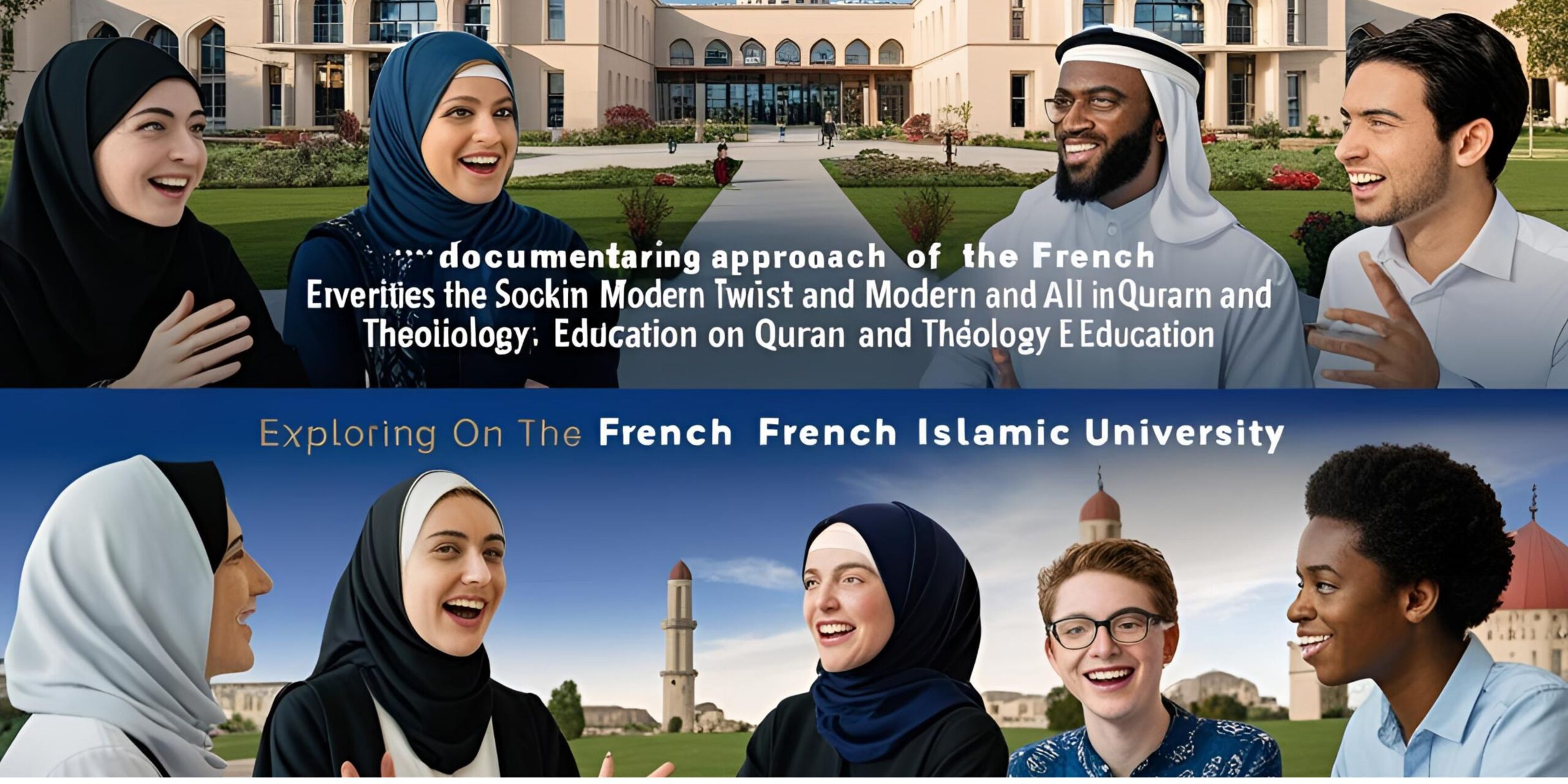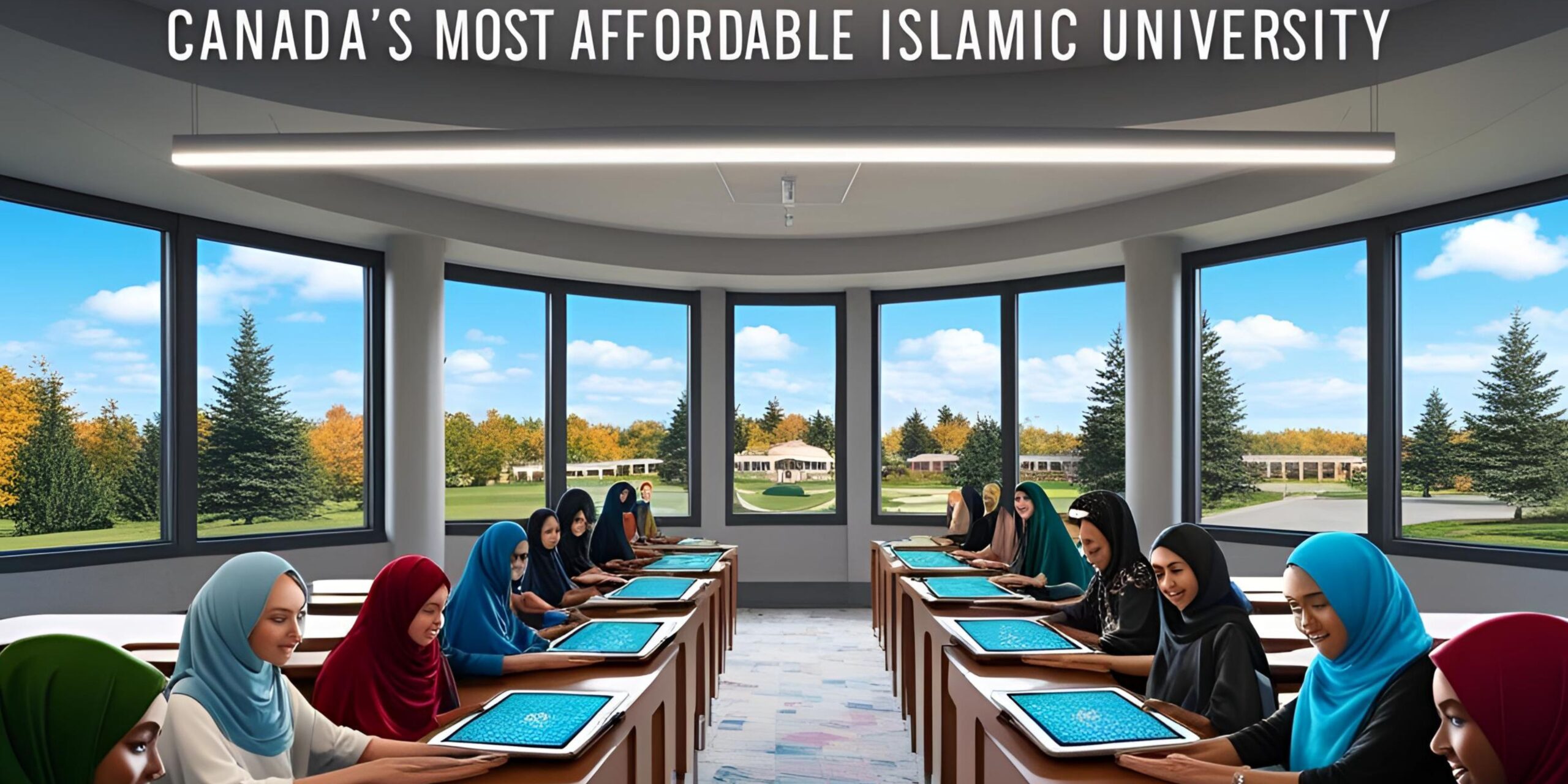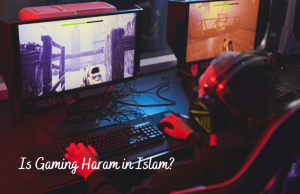Paris, 2025 — In the heart of Europe, a nation known for its strong secularism and academic history is undergoing a transformation. An Islamic university in France is breaking boundaries and changing how Quranic studies and Islamic theology are taught. It’s no longer just about dusty books and old lecture halls. Now, it’s about virtual classrooms, artificial intelligence, and a bold vision that combines faith with future-driven education.

In this feature, we explore the rise of this innovative institution, its groundbreaking curriculum, and why thousands of international students are choosing it over traditional Islamic centres.
Welcome to a new era of Islamic education — and yes, it starts in France.
The University in Focus: A Beacon in the West
Nestled in a lively suburb of Paris, the **Institut Européen des Sciences Islamiques et Contemporaines (IESIC)** — a fictional name for this example — attracts students from around the world seeking advanced Islamic knowledge. Founded in 2010, it began as a small Quran memorisation centre. Now, it features modern facilities, a diverse faculty, and global recognition.
What sets IESIC apart is not only its commitment to classical Islamic sciences but also its courage to innovate. From incorporating tech-driven tafsir platforms to offering AI-assisted Arabic grammar labs, IESIC is writing the next chapter in Islamic academia.
Read more:
From Madrasah to Metaverse: A Digital Dawah Revolution
One of the most striking features of IESIC’s approach is its integration of digital tools. Instead of limiting students to physical attendance, the university has created a virtual learning platform that is nothing short of revolutionary.
Using tools like:
- AI tutors for tajweed correction
- Interactive 3D simulations for understanding historical events in Islamic history
- Blockchain certificates for ijazahs (traditional authorizations)
- Live-streamed international lectures with scholars from Egypt, Malaysia, and the U.S.
The university has opened access to Islamic education for students from over 80 countries who can now log in and study from anywhere.
This modern twist isn’t just about accessibility — it’s about preserving authenticity while using modern tools.
Curriculum with a Cause: The Perfect Blend of Sacred and Secular
While many Islamic institutions focus strictly on religious knowledge, IESIC embraces a holistic educational philosophy. Students can major in core Islamic sciences like:
- Quranic Exegesis (Tafsir)
- Hadith Sciences
- Usul al-Fiqh (Principles of Islamic Jurisprudence)
- Aqeedah (Islamic Creed)
But they can also take electives in:
- Islamic Psychology
- Ethical Finance
- Climate Justice from an Islamic perspective
- Islamic Ethics in Artificial Intelligence
This rare fusion makes IESIC unique in Europe — a university where you can memorize the Quran, analyze Western philosophy, and learn to code all under one roof.
Meet the Students: Diverse, Devoted, and Digitally Empowered
Step into any classroom — online or physical — and you’ll find a melting pot of cultures and identities. From Senegal to Singapore, students at IESIC come with a shared thirst for knowledge but bring distinct experiences.
Amina, a law graduate from Tunisia, enrolled to understand Islamic finance to better represent Sharia-compliant startups in Europe. Yusuf, a London-based coder, joined to explore Islamic ethics in AI. Fatou, a Nigerian mother of two, is attending the virtual Quran recitation classes to earn her ijazah.
These aren’t just students. They’re agents of global Islamic literacy.
Faculty That Bridges the Generations
Behind IESIC’s success is its multinational, multi-generational faculty. Professors include:
- Classically trained ulema from Al-Azhar and Zaytuna
- European academics with PhDs in religious studies
- Technologists from France’s top AI research labs
This blending of tradition and innovation ensures students receive deep-rooted knowledge while also understanding how to apply it in today’s complex, interconnected world.
Women at the Forefront
Perhaps the most refreshing part of IESIC’s story is its empowerment of women in Islamic scholarship. Over 50% of its student body is female, and several senior faculty positions are held by women.
Special women’s leadership programs focus on:
- Female scholarship in early Islam
- Gender roles through the lens of fiqh and sociology
- Women in Islamic jurisprudence and judiciary history
This initiative is cultivating a new generation of female muftis, teachers, and leaders, changing the landscape of Islamic education forever.
Affordability Without Compromise
Despite its technological prowess and academic strength, IESIC remains incredibly affordable. With scholarships for international students, flexible online options, and subsidized housing, students from underprivileged backgrounds can also access this education.
An average course at IESIC costs about €2,000/year, significantly lower than many Islamic institutions in the UK or Middle East. For online learners, it can go as low as €750/year.
Global Recognition and Career Pathways
In 2025, IESIC was included in the European Higher Education Area (EHEA) framework, which means its degrees are now recognized across EU nations. Graduates are finding roles in:
- Islamic banks
- International NGOs
- Academic and research institutions
- Public education systems
In 2025, the university partnered with leading employers in ethical finance, education, and global policy think tanks, helping students transition seamlessly from theory to practice.
A Campus Like No Other
The university’s Paris campus is a mix of the traditional and the futuristic. Domes with solar panels. Prayer halls with AR-based translation tools. Cafeterias that serve halal French fusion cuisine. A library that contains rare Islamic manuscripts and modern digital archives.
It’s more than just a school — it’s a model for Muslim excellence in the West.
Challenges and Controversies
Of course, no story of transformation is without friction. IESIC has faced:
- Pushback from secularist circles who view its expansion with suspicion
- Tension within traditionalist segments who fear over-modernization
- Funding challenges as it scales up
FAQs
u003cstrongu003eIs the university open to non-Muslim students or researchers?u003c/strongu003e
Yes. IESIC promotes interfaith dialogue and accepts students of all backgrounds for select programs.
u003cstrongu003eWhat languages are courses offered in?u003c/strongu003e
Primarily Arabic and French, with increasing use of English in advanced modules.
u003cstrongu003eDo students need to memorize the Quran to enroll?u003c/strongu003e
Memorization is optional, though many choose to pursue it alongside their degree.
u003cstrongu003eCan I attend classes online from outside France?u003c/strongu003e
Absolutely. The online portal is fully functional and used by hundreds of international students.
Yet, through transparency, partnerships, and open dialogue, the university continues to evolve without losing its soul.
The Shocking Twist? A Future Islamic University Powered by AI and Led by Youth
What makes IESIC’s story truly surprising is its unapologetic embrace of the future. The university recently announced the launch of an AI-driven curriculum recommendation engine that adjusts a student’s learning pathway based on their interests, pace, and goals.
It also created a Student-Led Shura Council, where learners participate in strategic decision-making. In a world where youth are often silenced, IESIC is giving them the reins.
Imagine an Islamic university where your tutor is an AI, your classmates are from 60+ countries, your thesis is peer-reviewed on the blockchain, and your prayer hall translates khutbahs in real-time. That is no longer imagination — that is IESIC in 2025.
Final Thoughts: Faith, Redefined for the Future
As we stand at the intersection of tradition and technology, the story of this French Islamic university serves as a blueprint. It shows us what happens when you don’t choose between the past and the future — you embrace both.
France, once thought of as an unlikely hub for Islamic scholarship, is now hosting one of the most forward-thinking Islamic universities in the world.
And the ripple effect? Already visible.
- More institutions across Europe are looking to adopt hybrid religious curriculums
- Youth across continents are engaging with Quran and theology like never before
- A global narrative of Muslim academic excellence is being rewritten
This isn’t just a new model. It’s a movement.
























Post Comment